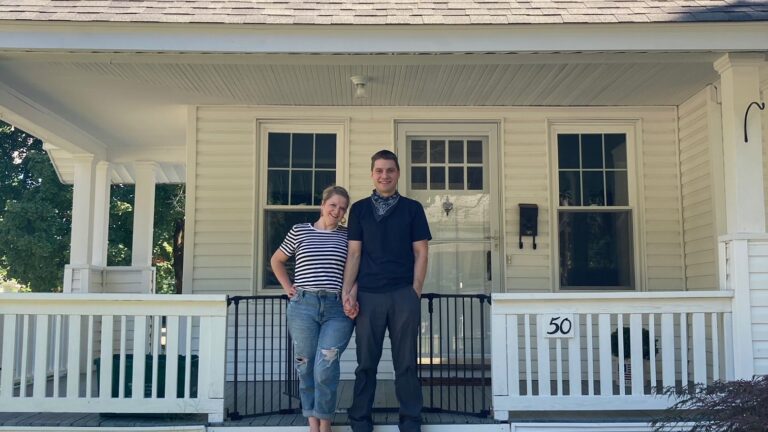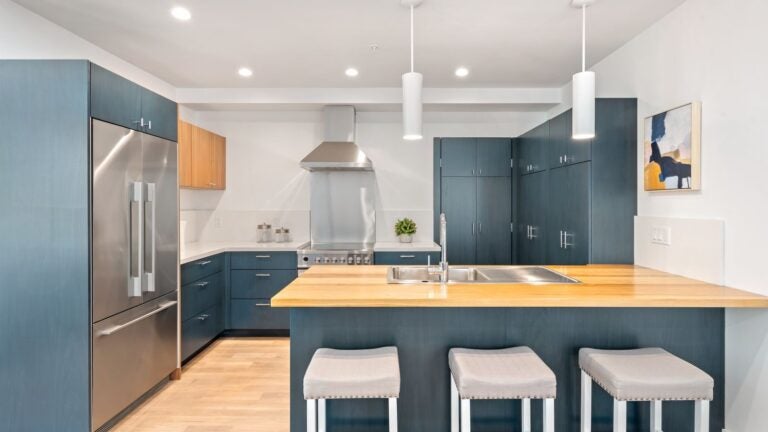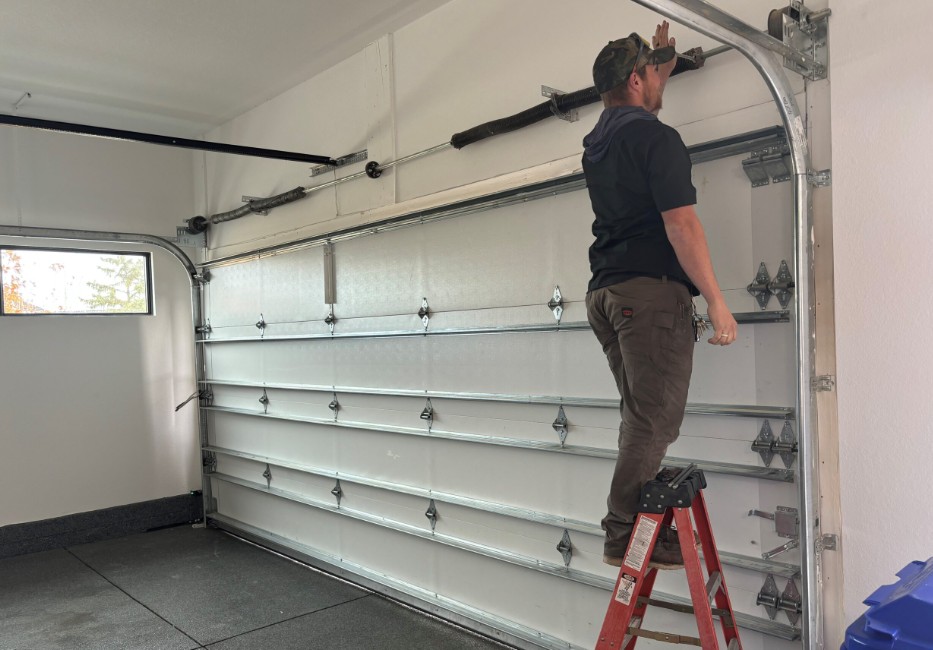Happy tales to you. Good news from the housing market.

Home Buying
Buyers, sellers, and industry experts offer tips on how to win.

Interest rates are in the sixes. Housing inventory is perpetually low. But all is not lost. Take it from these three housing warriors, who bought or sold homes in the past six months — and two real estate experts who found silver linings in this cloudy landscape.
Lesson 1: Network
Stomach woes. High blood pressure. Anxiety. No, this isn’t a Prilosec commercial: It’s the litany of symptoms that Worcester’s Margaret Kelley endured while hunting for a Central Massachusetts single-family home under $400,000 last summer.
“Everything from Framingham into Boston is untouchable,” said Kelley, who was spurred to move when her landlord planned to sell the rental she shared with her husband, Brian, a Worcester-area native. The pair was committed to staying in the neighborhood, and not just for financial reasons.
“The architecture is amazing, the culture incredible, and some of the best restaurants I’ve ever been to anywhere in the world are in Worcester,” she said.
So Kelley, a former marketer, assembled a team of real estate professionals whom she loved, because she knew it was going to be a bumpy ride. She networked her way to a savvy local real estate agent through her wedding officiant. But at first, she didn’t think Mary Surette from Coldwell Banker was her housing soulmate.
-

Home of the Week: A Savin Hill condo with a kitchen that will have you singing the (praises of) blues
-
5 cool homes for sale in Waltham below the typical price
“Half of my head is shaved. I have tattoos. I am not a traditional-type person looking for a house, and [our agent] looked like a Lilly Pulitzer-wearing, perfect New England woman in the summer. I thought, ‘She won’t get me,’” Kelley said.
As with houses, first impressions can be deceiving. Kelley trusted her friend’s recommendation, and the duo became fast friends.
“I was more in touch with Mary than any single person in my life. I would say it was on par with communicating with my husband,” Kelley said.
Meanwhile, her mortgage loan officer was once her high school biology lab partner. He came to the rescue when the pair needed to counteroffer on a dreamy 1916 Craftsman with a two-car garage in a hurry.
Someone had outbid their $380,000 offer. Did they want to bid again, and soon? They’d already lost two other houses. This one was perfect, and interest rates were creeping up. When Kelley’s husband walked in the door from work late on a Friday night, she burst into tears.
“I was losing my sanity. I asked, ‘Could we just put in 382?’ My husband [uttered an expletive and] said, ‘Let’s just do $382,500,’ ” she recalled.
Her lab partner approved the number. By Monday, their offer was accepted. Why?
“We’d outbid the other buyer — by $500,” Kelley said. “We wouldn’t have been able to buy this house even two months later.”
Address newsletter
Get the latest news on buying, selling, renting, home design, and more.
Lesson 2: Don’t use scare tactics
Neil and Elly Cullen received 10 offers for their 1,900-square-foot Lexington center-entrance Colonial in April, but they didn’t go with the highest bidder.
Instead, they needed to be strategic: The couple had just bought a roomy Victorian closer to Lexington Center that could accommodate their rumbling tweens. They did not want to carry two mortgages, and they needed someone who wouldn’t back out.
The house meant a lot to them. They’d bought it in 2013, when their kids were small, after having sold another property. At the time, the young family had already experienced two failed offers on other homes, and they were on the verge of needing to move somewhere, anywhere.
“We ended up getting the best house we tried for, on the last weekend possible, in order to avoid moving twice,” she said.
Fast-forward a decade: They chose a buyer who offered a bit less, but still a competitive amount, and who also agreed to a 45-day closing that allowed for the family to complete electrical work on their new house.
‘I was losing my sanity.’
Margaret Kelly, on the house hunt
“One realtor told my realtor that their clients had put down three offers that day, but that ours was their favorite. No way we were going with them,” Cullen said. “She was trying to force us to make a decision, but that’s the worst tactic you could have taken. We didn’t trust them to follow through,” money be damned.
Lesson 3: Refinance
Tom and Kate Hurley purchased a character-filled Victorian fixer-upper in Arlington in October as interest rates climbed. However, the price was right, the home needed work but had plenty of potential, and the family planned to stay put for the long haul. It was time to pounce.
It helps that Tom is an electrician who can do rewiring work on the property, and Kate is willing to strip the wallpaper and make updates herself. The previous owner was elderly; when she died, her extended family was poised to sell. The Hurleys offered to buy the house as is, so the heirs didn’t need to offload excessive furniture or belongings. They considered the purchase a victory.
“I would rather pay a higher interest rate and get a [better] home price. Interest rates will come down, and then you can refinance,” Hurley said. “[Fluctuating] housing prices don’t bother me. I’m not buying the house as an investment; I’m buying it to be the house I live in for the rest of my life.”
Melony Swasey, a real estate agent with Good Boston Living in Jamaica Plain, agreed with Hurley’s approach. Higher interest rates have soured some prospective buyers as their purchasing power has shrunk, she said. On the other hand, it’s easier to find a house without feverish competition.
“If you can’t afford to compete, this is your chance,” Swasey said. “You can refinance if rates go down. Don’t lose the opportunity.”
Swasey said interest rates could fall, possibly into the 5 percent range in early 2023, which could make the market heat up all over again.
Lesson 4: Blame the real culprit
What truly plagues local home buyers, she said, really isn’t interest rates. It’s low inventory, something that hasn’t changed in years. Molly Goodman agreed. Goodman is executive director of the Midas Collaborative, a nonprofit working to advance the financial security of low- and moderate-income residents in Massachusetts, and president of the board of Abundant Housing Massachusetts.
“The current real estate landscape in Massachusetts is driven by our severe housing shortage. We were in big trouble even before the rate hikes started,” Goodman said. “Some things that drive our absurdly low housing production [are] exclusionary/single-family zoning, an overly burdensome community process to get housing built, [and] opposition to housing by local elected officials. All of these factors either prevent needed housing from getting built or increase the cost of the housing that does get built.”
All is not lost. Goodman said, “Massachusetts has the best loan products for first-time home buyers.” She recommended that buyers examine county income limits for ONE mortgage. In southern Middlesex County, a family of four making less than $140,200 can qualify for the program, which offers fixed, low rates with as little as 3 percent down.
MassHousing also offers programs for first-time home buyers, with up to $30,000 in down payment and closing cost assistance for the purchase of a primary residence anywhere in Massachusetts and up to $50,000 in certain communities. She also recommends ONE+ Boston, which helps buy down the interest rate for Boston buyers. MassDREAMS, meanwhile, offers down payment assistance using American Rescue Plan Act of 2021 funds.
If you can buy and don’t have the stomach for a multiple-bid situation with dozens of contingency-waiving buyers? Seize the day.
“You can refinance as soon as interest rates drop. Banks will be all over you. Power and control come from owning property,” Swasey said.







